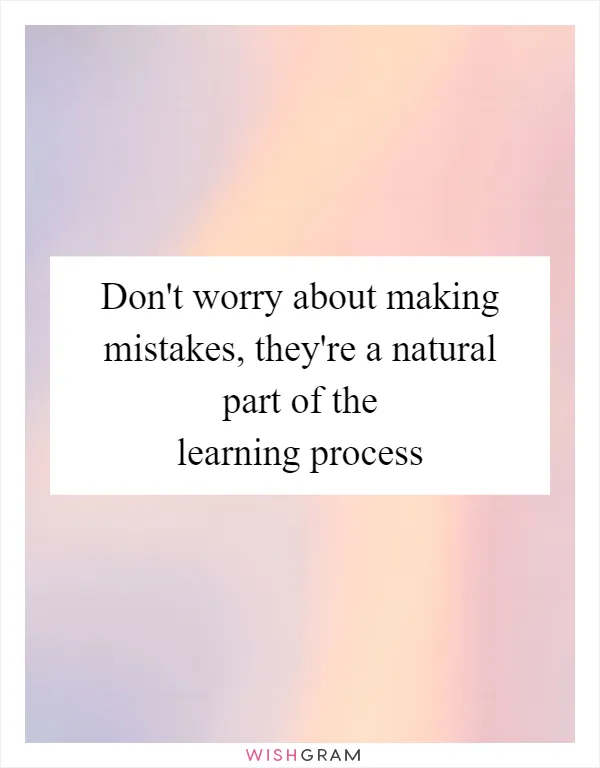Don't worry about making mistakes, they're a natural part of the learning process
Making mistakes is completely normal and actually an essential part of the learning process. It's important to remember that everyone makes mistakes, regardless of their level of expertise or experience. Mistakes provide valuable opportunities for growth and improvement, allowing us to learn from our errors and become better at what we do.
When we try something new or venture into unfamiliar territory, it's only natural to stumble along the way. Making mistakes doesn't mean we are failures; it means we are actively engaging in the learning process. Each mistake we make brings us one step closer to mastering a skill or understanding a concept. So, instead of being afraid of making mistakes, we should embrace them as stepping stones towards success.
Mistakes often provide us with valuable insights and lessons that we wouldn't have gained otherwise. They help us identify areas where we need to improve and give us the chance to refine our approach. By analyzing our mistakes, we can understand what went wrong and develop strategies to avoid similar errors in the future. This process of reflection and adjustment is crucial for personal and professional growth.
Moreover, making mistakes allows us to develop resilience and perseverance. It teaches us to bounce back from setbacks and keep pushing forward. When we encounter obstacles or make errors, it's important to remember that they are not permanent roadblocks. Instead, they are temporary hurdles that we can overcome with determination and a positive mindset.
It's also worth noting that mistakes often lead to innovation and creativity. Some of the greatest discoveries and inventions in history were the result of mistakes or accidents. When we make mistakes, we are forced to think outside the box and explore alternative solutions. This can lead to unexpected breakthroughs and new ways of doing things. So, rather than fearing mistakes, we should view them as opportunities for innovation and originality.
Lastly, it's important to create an environment that encourages and embraces mistakes. When we feel safe to make mistakes, we are more likely to take risks and explore new possibilities. This applies to both individual learning journeys and collaborative work environments. By fostering a culture that values learning and growth, we can create a supportive atmosphere where mistakes are seen as valuable learning experiences.
